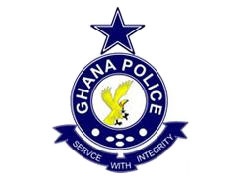The reputation of the Ghana Police in combating crime is admiring, however, their inability to preempt and quell politically colored disturbances and prosecute such offenders leaves much to be desired.
Although Political Scientists suggest that "struggle" is characteristic of political power pursuit, violence of any sort is intolerable. A weak law enforcement agency is largelyto blame for the continued politically related disturbances that have over the years plagued our body politic. Sadly, the Police have resorted to rhetoric and propaganda as a means to gain public confidence rather than living out their mandate by "action".
The recent political attacks at the residence of Nana Addo Dankwa Akuffo, a location that is less than a minute walk from the Nima Police Station is among many, sufficient proof that the Police is engaged in lip service rather than asserting authority during the 2016 election season.
On many occasions, the ability of the Police to gather intelligence is questioned as journalists tend to be ahead of the Police's intelligence machinery.
Recently, Joy FM reported of the presence and activities of persons labeled as "rebels" in two mining communities in the Northern Region. When the PRO of the Region's Police Command was interviewed, he adopted a "political approach" to answering questions. He flatly denied the story at first instance only to admit after further questioning that the command is aware of the presence of persons labelled as such.
Political clashes have been recorded in the Wa East District, Wulensi, Ajumako-Besease, Asokore in the eastern region, etc. leading to several injuries, yet, in all such instances, the Police is only heard after the clashes with their usual rhetoric and 'political assurances'. Even when they make it to the crime scene, no arrests are made.
Year after year, the Ghana Police gives assurances about their preparedness to maintain the peace, yet when they are practically tested, their resolve is shaky.
Public Relations is crucial to societal stability more so, the existence of journalists and the media who would want to obtain and provide credible information to the public. However, ‘vain talk’ as a tact to gain public confidence would, in the long run, undermine honest assurances.
The quest of political leaders to compromise the mandate of the Police is an open secret. Ironically, the Police Service in some other jurisdictions can withstand similar 'pressures', why can't the Ghana Police do same. A Politician appoints the head of Ghana's Police (Inspector General of Police); the Head of the United State's FBI is equally appointed by a Politician, yet, the FBI is able to draw a line between "Political Interest" and "Public Interest".
It is hoped that the Ghana Police Service will live out their mandate and desist from churning out “propaganda" as a means to gain public confidence. "Action" is very much desired.
The Police must, in the Public Interest, sharpen its intelligence machinery to preempt, quell, arrest and prosecute persons who will attempt to disturb the peace of Ghana during the 2016 election period and those yet to come.
Opinions of Tuesday, 29 November 2016
Columnist: Atiemo Obeng Paul
When the policeman becomes a politician
 File photo
File photo


















